 book an appointment
book an appointment
 Call 519-900-5366
Call 519-900-5366
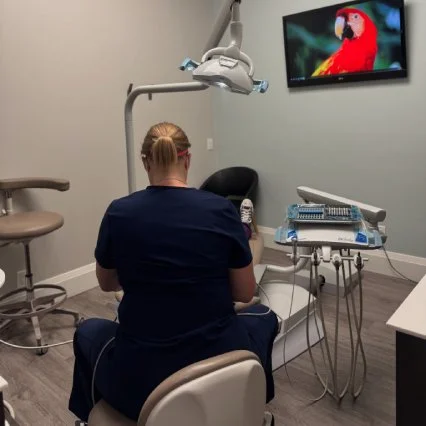
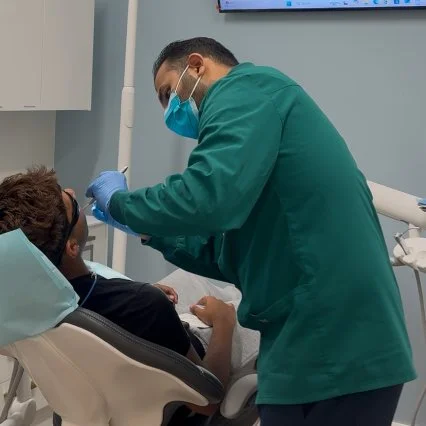
Oral cancer often develops in silence. No pain. No clear symptoms. But real consequences.
It can involve the tongue, lips, throat, or floor of the mouth and might not be noticed until it is advanced. This is why early detection is important. The majority of oral cancers that are detected in their early stages are treatable, but many are diagnosed too late simply because they were not screened in time.
This is where your dentist comes in. At Magnolia Dental Guelph, we include oral cancer screening Guelph with your routine checkup. The procedure is rapid, painless, and life-saving. Our staff is equipped to detect what you can’t see so you can feel good about your health and your smile.
Oral cancer is a serious condition that can affect the tongue, lips, gums, cheeks, the floor of the mouth, or the back of the throat. In early stages, it can be difficult to spot without an adequate oral health screening.
Watch for symptoms that might seem insignificant at first. If they persist beyond two weeks, have them checked. Symptoms can include:
Magnolia Dental provides dental checkup in Guelph to help you identify these symptoms before they become an actual problem.
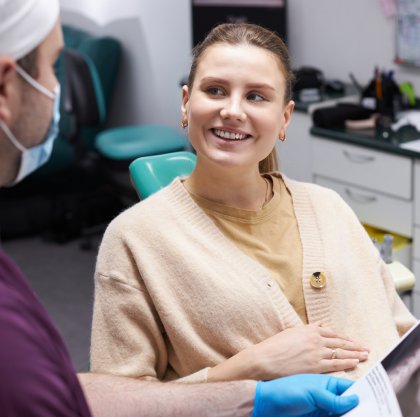
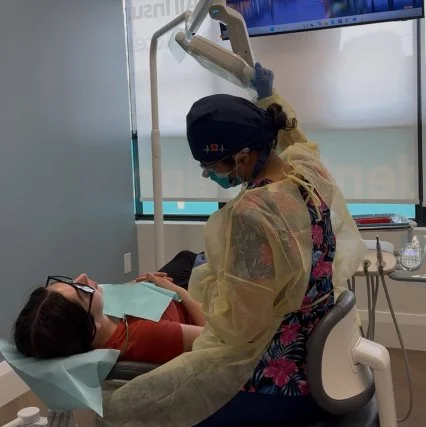
Anyone can get oral cancer, but some people are at a higher risk. If any of the following apply to you, regular screening is even more necessary. Risk factors are:
If you belong to one or more of these categories, discuss frequent screenings with your dentist. At Magnolia Dental Guelph, we take your medical history into account and assist with oral cancer detection.
Your screening is quick, completely painless, and included in your routine visit with your trusted dentist in Guelph.
Visual Inspection
We start with a comprehensive examination of your lips, tongue, gums, and cheeks, as well as the floor and roof of your mouth. We examine your mouth for any lesions, discolouration, or unusual textures that can be an early warning sign.
Tissue Palpation
With gentle pressure, we press along your jawline, neck, and within your mouth to check for any bumps, thickening, or changes in tissues that are not seen but could indicate an issue.
Advanced Screening Tools
We may augment your examination with VELscope technology, which assists in identifying cellular changes that cannot be seen by the naked eye for further diagnostic precision.
If we observe anything suspicious at your screening, we will outline it in a clear manner and suggest the follow-up steps. These could involve:
At Magnolia Dental Guelph, our staff guides you with empathy and straightforward communication throughout the entire process. We embrace early action, open discussion, and oral cancer specialist referral. Detection of oral cancer at an early stage greatly enhances your treatment options and the overall outcome.
You can reduce your risk of oral cancer by making healthy choices daily. Take the following steps:
These routines keep you educated and ahead of the game. At Magnolia Dental Guelph, we provide preventive dental care and continuing oral health care at every appointment.
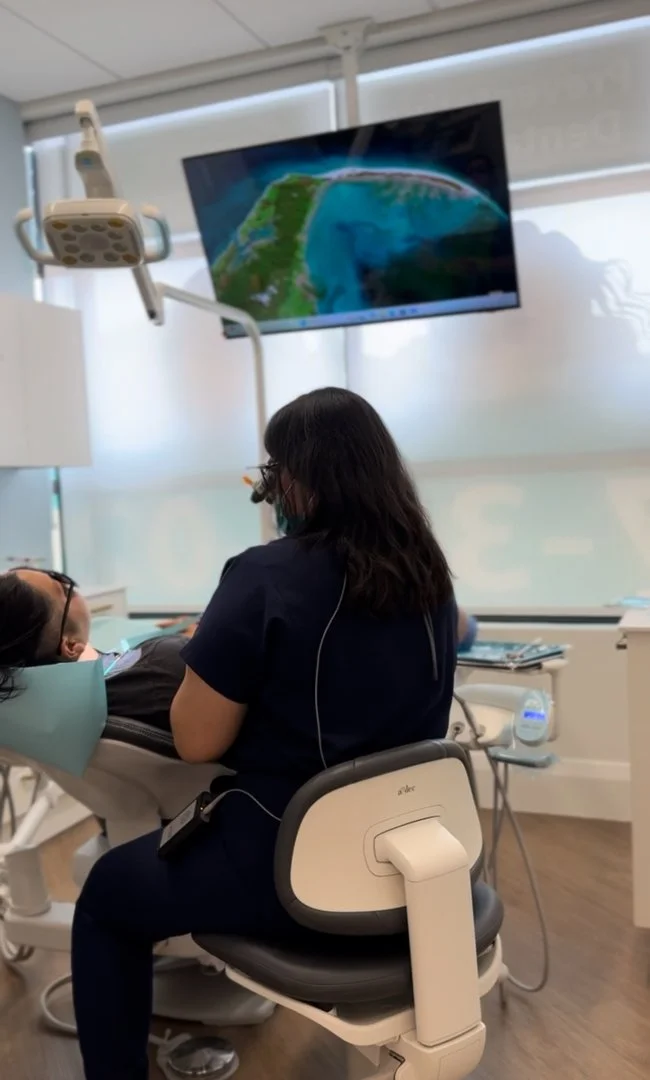
A few minutes is all it takes to catch signs early and protect your health. Don’t wait for symptoms. Stay proactive with a screening. Book now with Magnolia Dental Guelph for trusted care.
The screening typically only takes 5 to 10 minutes. It is brief, painless, and part of your routine dental checkup. Even though it is a short process, this easy step is an important part of safeguarding your long-term health and well-being.
No preparation is needed. Just come in for your routine dental visit as you normally would. We will do the screening during your visit. You don’t have to fast, restrict any foods, or alter your usual daily activities.
No. Oral cancer screening is a simple, non-painful test. We check your mouth, tongue, and throat gently with no needles or devices that hurt. Patients are amazed at how easy and fast it is.
We suggest getting screened every year during your regular dental check up. Yearly screenings can catch changes early, even before symptoms develop. If you have risk factors, we might recommend more frequent examinations to keep a close eye on your oral health.
If we find something unusual, we will tell you in plain terms and suggest the course of action. This can range from more observation, referral to a specialist, or biopsy. We will guide you through the process with honesty and compassion.
Yes, the majority of insurance policies cover oral cancer screening in your routine dental visit. We will assist you in checking your coverage and take care of the paperwork so that you can concentrate on your well-being without incurring any unpleasant financial surprises.
Yes, though more rare in younger patients, mouth cancer can occur in anyone. Everyone should have regular screening done, especially if there are risk factors like HPV, smoking, or a family history of cancer.
Yes, we employ state-of-the-art equipment such as the Velscope system. It assists in revealing changes in tissues that are invisible to the human eye, allowing us to increase our accuracy. Our aim is to detect problems early when treatment is most easy and effective.